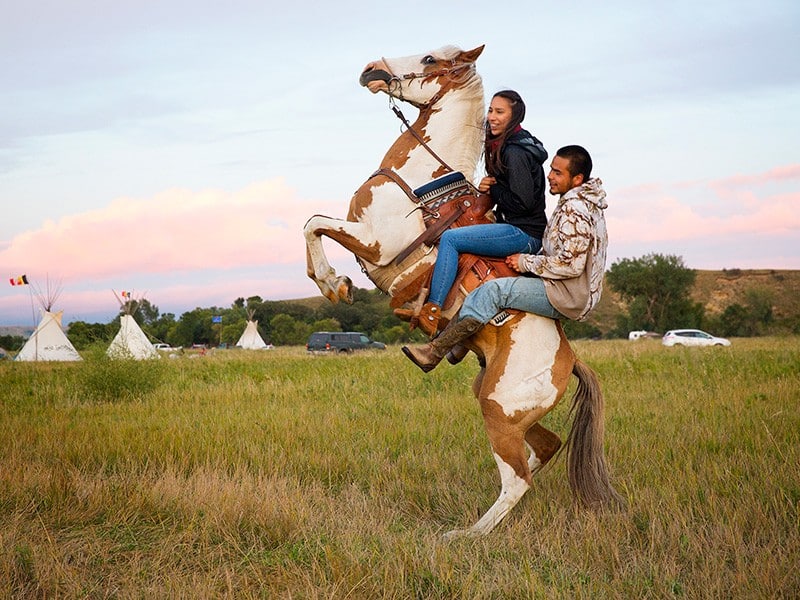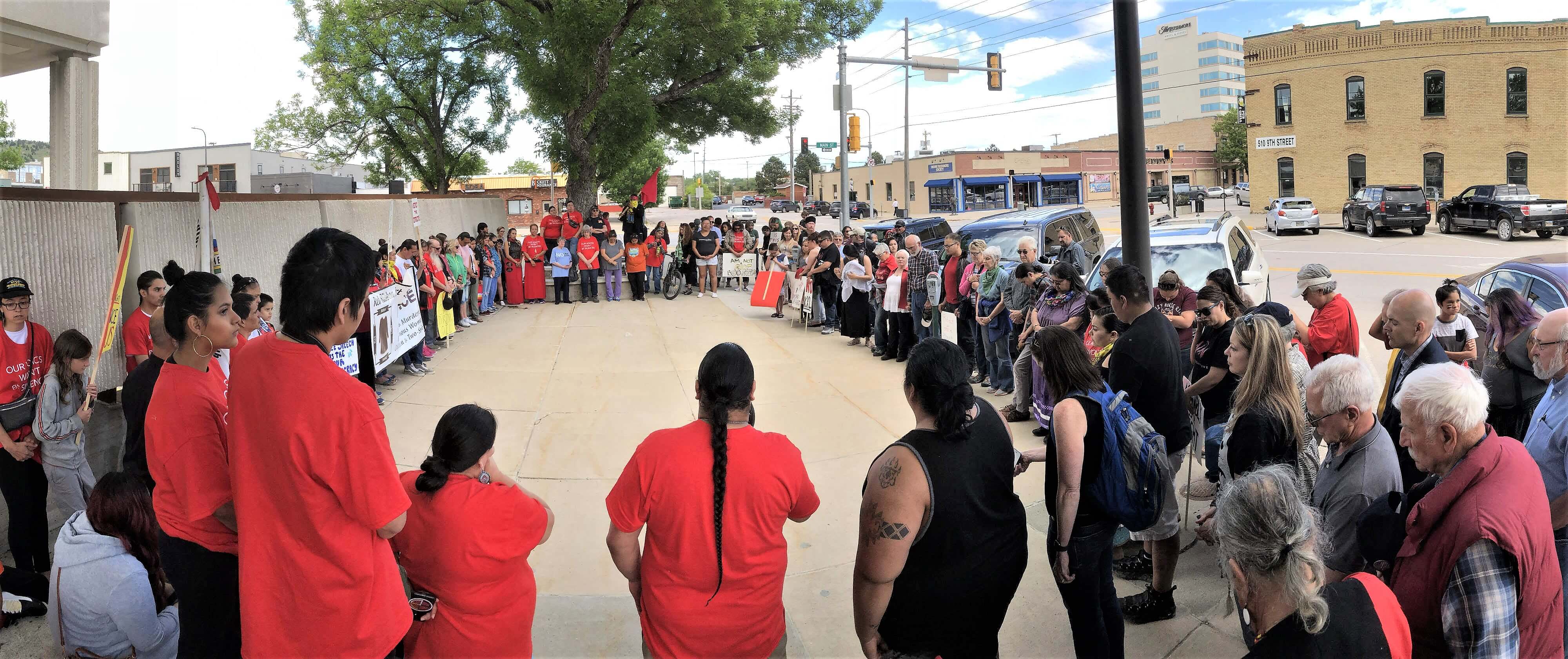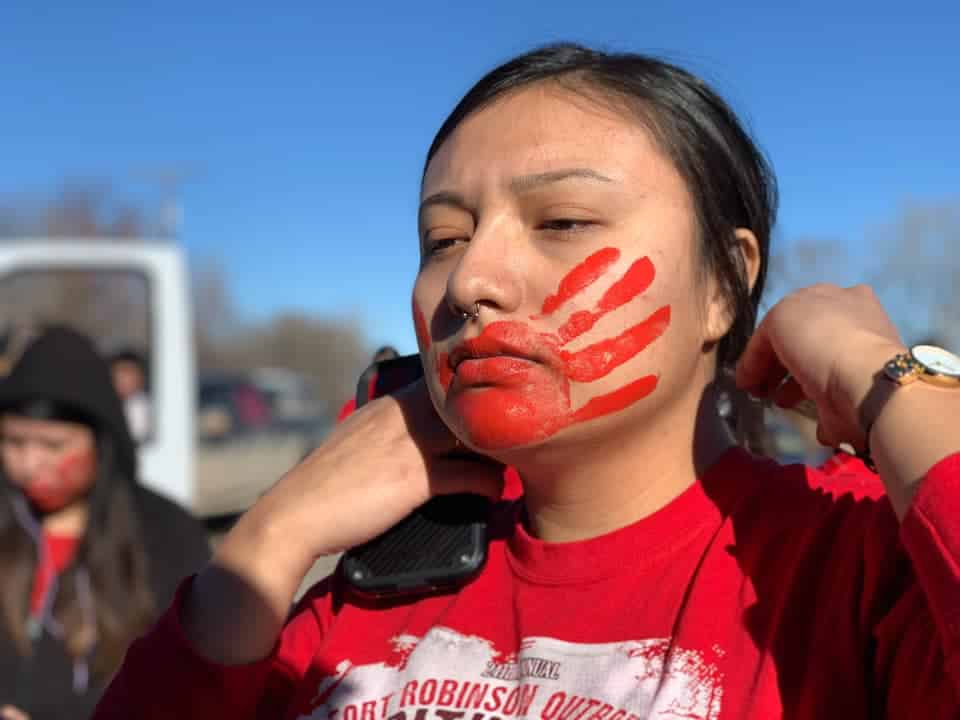The Lakota also known as Lakhota, Teton, Tetonwan (“dwellers of the prairie”), Teton Sioux) are a Plains People based in several territories throughout the United States and Canada. The Lakota are part of a confederation of seven Nations jointly known as the Oceti Shakowin or Seven Council Fires.
The seven nations that comprise the Oceti Shakowin are: Bdewákaŋthuŋwaŋ (Mdewakanton), Waȟpéthuŋwaŋ (Wahpeton), Waȟpékhute (Wahpekute), Sisíthuŋwaŋ (Sisseton), the Iháŋkthuŋwaŋ (Yankton), Iháŋkthuŋwaŋna (Yanktonai), and the Thítȟuŋwaŋ (Teton or Lakota).
The Lakota were originally referred to as the Dakota when they lived by the Great Lakes. Encroaching European-American settlement led them to migrate west from the Great Lakes region. They later called themselves the Lakota, and were also called Sioux. They were introduced to horse culture by the Cheyenne about 1730.
After their adoption of the horse, šúŋkawakȟáŋ ([ˈʃũka waˈkˣã]) (‘dog [of] power/mystery/wonder’) their society centered on the buffalo hunt with the horse. There were estimated to be 20,000 Lakota in the mid-18th century. The number has now increased to about 70,000, of whom about 20,500 speak the Lakota language.
Legally and by treaty a semi-autonomous “nation” within the United States, the Lakota Sioux are represented locally by officials elected to councils for the several reservations and communities in the Dakotas, Minnesota, Nebraska. They are represented on the state and national level by the elected officials from the political districts of their respective states and Congressional Districts. Band or reservation members living both on and off the individual reservations are eligible to vote in periodic elections for that reservation.
There are nine bands of Dakota and Lakota in Manitoba and southern Saskatchewan, with a total of 6,000 registered members. They are recognized as First Nations but are not considered “treaty Indians”. As First Nations they receive rights and entitlements through the Indian and Northern Affairs Canada department. However as they are not recognized as treaty Indians, they did not participate in the land settlement and natural resource revenues. The Dakota rejected a $60 million land rights settlement in 2008.
Text adapted from Wikipedia’s article on the Lakota peoples




